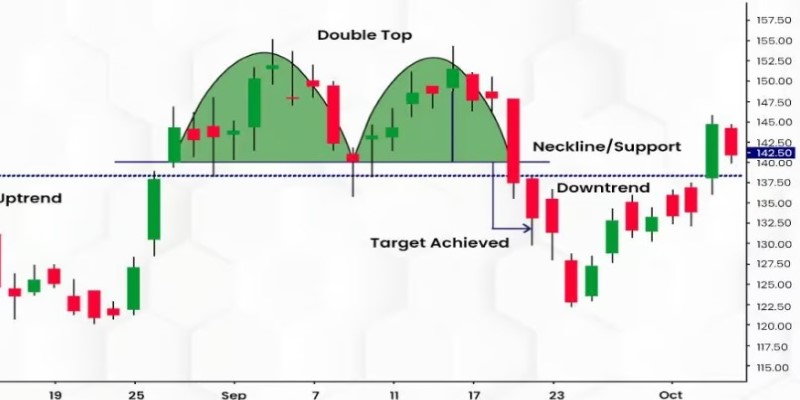One of the most secure and laid-back approaches to managing your funds is to let a funds manager make critical financial decisions. They are experts at what they do and analyze the market with their experience and tools at their disposal to make the best choices.
One of the strategies they use to achieve growth is called active management to achieve your growth goals. So, if you want to surpass different benchmark index barriers, active fund management should be your choice.
Therefore, if you want to learn more, please read the article to know more.
What is Active Management?
It is the strategy your portfolio manager typically uses when investing in a diverse stock portfolio. It doesn’t matter if he is the one doing the analytical research or has a team of analysts collecting all the data for him. As long as the entity makes decisions based on the research to buy, sell, and hold stocks at the right time to achieve its goals, the job is done.
The concept of active portfolio management typically comes from the inaccuracies present in the stock market. This may be due to many things, such as stock prices intentionally kept low or new mergers taking place. Fund managers are on the lookout for these tidbits to assess in their analysis.
Advantages of Active Management
Now that we understand a bit about Active management let's move towards the advantages of actively managed funds.
Higher Return Potential
If your analysis of the market is correct, then you choose under and over-valued stocks. You invest in the under and avoid the over like a plague. The undervalued stocks have the highest potential of giving you higher yields, while overvalued ones have more risks and fewer yields.
Some of the factors, including a good, undervalued stock choice, can be their track record, regular cash flow, the fundamentals that make its growth sustainable, etc.

Quick Response to Market Conditions
Even though the stock or portfolio market tends to have an excellent upward or downward curve, volatility and sudden changes can occur. If you have hired a good funds manager, they know their active management strategies.
Best fund managers observe not just the market but also the news and special market indicators like political events, and they change their strategies accordingly.
Diversification Opportunities
Having years of experience in managing different stocks and portfolios, your fund's manager will know better investment options. Some will be riskier but higher-yielding, while others can easily cushion most blows.
So, if they are doing proper active fund management, they will invest your funds in different industries and niches. It is pretty standard that slow business is cyclical, where when one sector is slow, the other will bear more fruit.

Disadvantages of Active Portfolio Management
While most of these might not be as bad, nonetheless, we must mention them. A funds manager may be as good as the advantages of actively managed funds.
Higher Fees
It is quite understandable that the fund's manager works hard to research and trade to make better analyses. Furthermore, their experience draws investors. It is, therefore, that they charge quite a lot for their active management experience.
These higher fees can add up to costs and minimize your profits, especially if you are a new and small investor. Bigger companies spend more on marketing, so it is just a small, inconsequential fee for them.
Consistency is Difficult
You cannot consistently outperform the benchmark index, as it isn't humanly possible. You cannot always be right and thus can make mistakes in judgment of stocks.
These errors in judgment are primarily because of the market volatility but still can cause you to bear the losses.
Active Management Critical Strategies
Let's take an overview of what these strategies a typical manager uses.
Fundamental Analysis
This analysis involves understanding the basics of a target company whose stocks you want to trade with. You need to analyze their financial health, how long they have been good at it, and more.
You cannot simply go by the numbers these companies publish but have to go through their statements and balances to asses what assets and liabilities they possess.
A simple misunderstanding of their liability can cause you loss as the identical liability is the downfall of that company's stock prices.
Technical Analysis
This analysis involves looking at the most recent trends and extrapolating them over five years. Assessing these trends allows your manager to predict how these trends will change in the coming future.
Doing technical analysis requires a good knowledge of statistical analysis theories and the ability to see numbers and graphs more clearly.
Quantitative Analysis
Unlike the other two strategies, QA involves more models and machine learning than your actual judgment. Your fund's manager will need tons of data from the market as well as historical data to make more accurate models. These models can then analyze the data and give results.
No matter the strategy, the purpose is to understand the trends and make better financial decisions.
Qualities for a Good Active Manager
Investment Philosophy – Their values and investment philosophy should align with your goals and aspirations. They will be the better judge of how to process results based on them.
Good Track Record – Even though they may be costlier, an experienced manager and a good track record can yield you more returns.
Investment Process – You can make this judgment if you are experienced yourself. Otherwise, it is better recommended to follow a more passive manager.
Final Words
In this article, we have discussed how a good funds manager can boost your yields if you follow an excellent active management strategy. They must know their way around the market and how different trends unfold.
With a sound management strategy and accurate fundamental and technical analysis, they can give you more yield while mitigating risks.
Commonly, more experienced investors will recommend always going towards more active management rather than passive.







